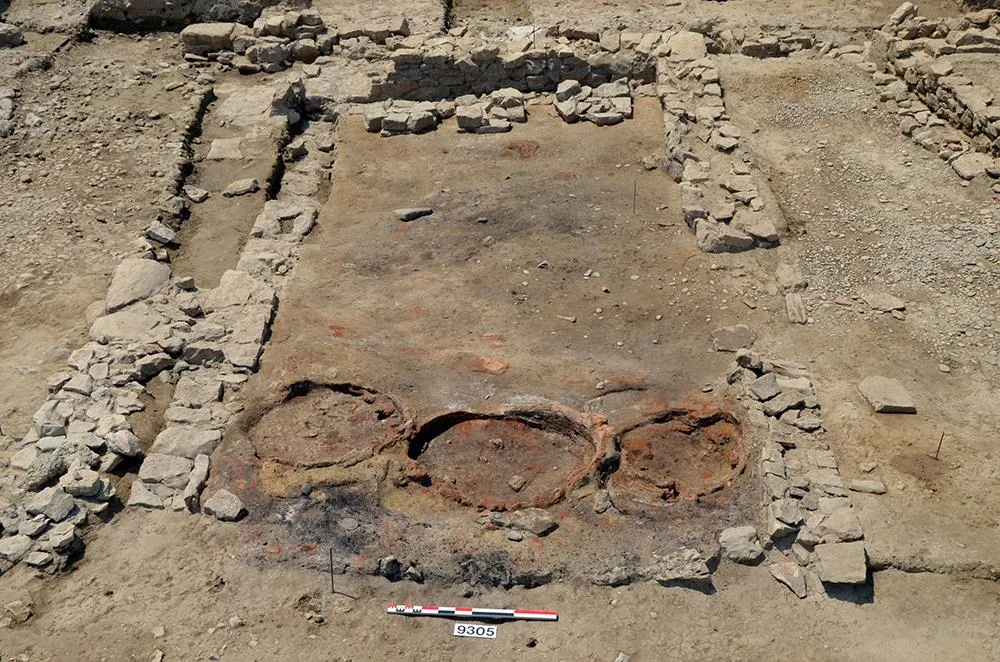2,100-Year-Old Roman Tavern Unearthed, Empty Cups and All
The proposed ancient bar and grill in southern France could shed light on the spread of Roman culture
/https://tf-cmsv2-smithsonianmag-media.s3.amazonaws.com/filer/a9/3a/a93a9adc-8678-4732-a80c-9c053ac33b7f/roman_fresco.jpg)
The ancient Romans weren’t shy about their love of eating and drinking, and their beverage of choice was wine. They loved their vino so much they wrote poems about it, sang about it, gave speeches about it, painted frescoes to celebrate it and drank it in great quantities. So it’s no surprise that the taberna was a key location in Roman life. A new discovery in southern France, thought to be a roughly 2,100-year-old Roman tavern, shows that it was also a way the Romans spread their culture and ideas after colonizing other nations.
Described in the journal Antiquity, the structure was unearthed in the ancient port of Lattara, an archeological site near the modern city of Montpellier. At first, reports Laura Geggel at LiveScience, researchers thought the building was a bakery because of the presence of three ovens and a millstone in one of the site's two large rooms.
But further excavation in the second space revealed fish vertebrae and scales, animal bones, large serving platters and bowls as well as lots and lots of drinking vessels for wine. The room also has remnants of benches along three walls and a charcoal burning hearth in the floor, the perfect spot for patrons to recline and enjoy a meal and a few adult libations, Roman style.
The tavern is an intriguing find, but it has a larger significance. Researcher Benjamin Luley of Gettysburg College, one of the tavern’s discoverers, tells Traci Watson at USA Today that the area’s residents were Celtic farmers before the Romans arrived. After the Romans showed up, the port urbanized, jobs diversified and large workshops popped up driving demand for eating and drinking establishments.

It also signaled the transition from barter to a monetary economy in the area. “If you’re not growing your own food, where are you going to eat?” says Luley. “The Romans, in a very practical Roman way, had a very practical solution … a tavern.”
Not everyone is convinced that the site is necessarily an ancient watering hole. Roman historian Penny Goodman of the University of Leeds told Watson a lack of coins found in the site might indicate the structure was a private dining room.
Still, it’s gratifying to know that ancient Europeans spent their Friday nights—or dies Veneris—as many modern people do, eating and drinking with friends. But maybe with fewer fish bones on the floor.